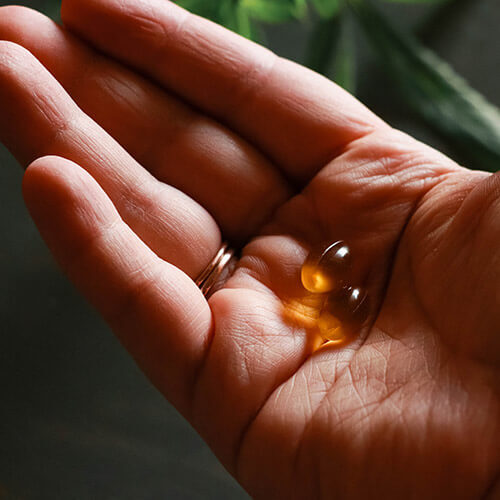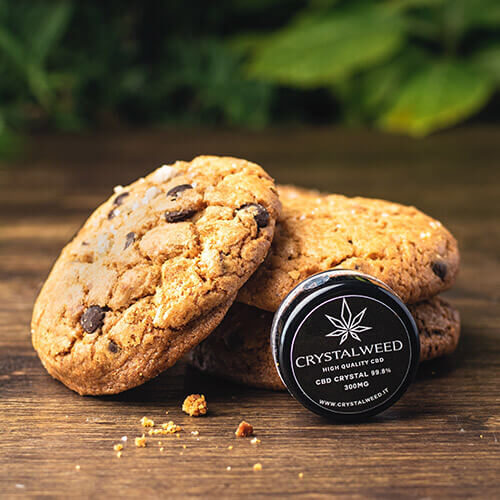We were lucky to have a representative from CannaSafe on site last week to discuss the findings of their recent study of elicit, black market vape cartridges. The findings were scary, but not for the reasons we were expecting.
Factors Contributing To Vape Related Lung Illnesses
Cutting Agents
A cutting agent is a chemical or natural filler used to dilute a drug with a less expensive substance to lower costs. Not all cutting agents are harmful on their own, but when heated at high temperatures the agents tend to change. The black market uses fillers to thin out cannabis oil so that they can stretch their margins. This results in a lower potency product but also some harmful and frightening side effects.
Vitamin E Acetate was found in the lungs of all patients with fatal vape related illness, but that is not the only cutting agent on the market. MCT Oil, otherwise known as coconut oil that is liquid at room temperature, was another common cutting agent found in CannaSafe’s study. While coconut oil is harmless to eat, there isn’t much research done to know if it is harmful when heated and vaporized. Would you put coconut oil in a bowl and smoke it? One could infer that this may not be the healthiest, but ultimately, more research is needed.
Another more startling finding was the chemical Polyethylene Glycol, which is most commonly found in over the counter laxatives! While this substance can also be found as a filler in Pharmaceuticals, this chemical is not meant for inhaling.
Temperature
Another factory that contributes to the dangers of vaping is the volatility that happens when oils are heated above their ideal burning point. Even in the legal cannabis market companies are not required to list the recommended burn temperature, meaning that a healthy, high quality oil could become harmful if heated. Overheating oils can lead to off-gassing which happens when the molecular structure of the oil changes at high temperatures.
CannaSafe tested this by overheating oils to measure gasses that were released. “We found that even the oil in legal cartridges broke down into unfavorable chemicals when vaporized at higher voltage settings”. They measured levels of Carbon Monoxide, Hydrogen Cynonide and even Formaldehyde! This is horrifying, and what’s more is that they discovered harmful gasses being off-gassed even in higher quality, legal oils.
What can we do? CannaSafe stressed the importance of investing in a good quality battery, ideally one that is from the same company as the cannabis extract. In theory, the manufacturers battery should be designed to burn at the proper, safe temperature for that oil. You should also make sure to use the matching battery charger for the safest use of the battery.
Flavoring
Currently there are no regulations on adding flavoring to vape cartridges. Companies can use cannabis or non-cannabis derived terpenes to add flavors and smells to vapes. Terpenes are essential oils found in plants and fruits. Limonene for example is the natural compound that gives lemons and limes their tart, sweet smell and flavor, which is also found in Super Lemon Haze.
Terpenes can also be made artificially in a lab, but where are they coming from? The truth is when flavors are added, companies are not required to disclose the process or origination of them. There is currently no research on the effects of flavor additives on health.
Hardware
Hardware is the last factor and is equally as worrisome as the rest. In CannaSafe’s study they found that lower quality hardware was potentially leaching heavy metals into the cannabis oil! A phase three testing series is needed to validate these findings, but CannaSafe did find low amounts of heavy metals in even high quality oils that did NOT contain the metals before being used with a battery.
Currently the BCC does require heavy metal testing in the legal market, and the legal limit for lead is .5ug/g. The findings in illicit vape cartridges were 8.864ug/g!
According to CannaSafe, “Consumers who are able to spend more money on their vape hardware can benefit from engineered solutions that allow for direct control over temperature.”
Conclusion
More research needs to be done, and we need to shop in the legal market! When comparing Black Market Vapes to Legal Vapes the results were clear: Legal, tested products have lower levels of heavy metals (if any) and less chemical cutting agents (if any). More factors need to be studied, like the effects of added terpenes, but to be safe we recommend buying only the highest quality oils with an equally high quality battery.
Consumers need to ask questions and demand that brands be transparent with their manufacturing process and ingredients. Be smart! It’s worth spending $10 more on a battery that will not only last longer but will prevent the leakage of heavy metals into your lungs.
If you have any questions, please chat with our Budtenders about what concentrate company may be the right fit for you. We also encourage you to reach out to your favorite concentrate brands and ask them about their practices! The cannabis industry is one of community and growth, and ultimately healing, so don’t be shy!
Download CannaSafe’s full consumer report here.
Article written by Alexa Jesse.









